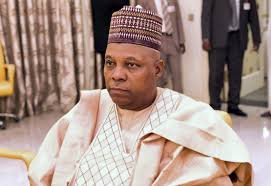Abdullahi M. Gulloma
Recently, the Head of Civil Service of the Federation, Mrs. Winifred Oyo-Ita, reiterated the commitment of the administration of President Muhammadu Buhari in sustaining the free treatment of skin cancer for people living with albinism.
Mrs. Oyo-Ita said this in her office when she received members of the Albinism Foundation of Nigeria, led by Mr. Jake Epelle.She said Nigeria was the only Country in the whole of Africa that was rendering that service free to people living with albinism.
She said people living with albinism are human beings like any other and they should be treated with love and respect. She, therefore, called on Nigerians to assist albinos, especially in the areas of employment and skills acquisition, in order to improve their standard of living in the society.
In his remarks, the founder of the Albinism Foundation of Nigeria, Mr. Jake Epelle, said that the association was in the Office of Head of the Civil Service to sensitise Nigerians on the core values of the association, its achievements and areas of challenges.
He commended Buhari for his handling of the various challenges of the people living with albinism such as skin cancer, poverty, under-empowerment and unemployment.
Truly speaking, persons suffering from albinism need help. But so do other categories of Nigerians, especially educated youth, who equally suffer from the problems enumerated by the albinos’ chairman.
Naturally, many promises would have been made by the head of service, on behalf of the government, on how to assist the albinos, just like pledges were made to assist our unemployed youth, but the truth remains that most government intervention programmes designed to tackle the challenges of the Nigerian vulnerable population have not been implemented properly.
Apart from that, such interventions suffer from inadequate and effective monitoring, sustainability and the absence of a political will to drive them. The consequence is that the impacts of these interventions are minimal with the brutal reality of what Nigerian youth, including their albino counterparts, are passing through.
The environment is not enabling enough for them to start sustainable businesses for those who wish to go entrepreneurial. No access to loans from banks, limited access to loans from the government, no access to meaningful skilled acquisition trainings and no serious policy to address fundamentally the issue of unemployment by the different Nigerian governments.
Agreed, albinos have unique health problems of their own with research showing that skin cancer constitutes 80 per cent of the health problems faced by people living with albinism, because people living with certain risk factors like albinism are more likely than others to develop skin cancer.
Still, other classifications of Nigerians suffer their own forms of unique problems, be it social or cultural deprivation or alienation, health or economic. Thus, it is high time the government came up with an agenda to comprehensively address challenges of all deprived Nigerians, especially the youth.
There is the need for a robust plan from the government, which should contain all the young people. Agreed, albinos’ participation in governance should be made a policy because it’s arguable that when they are represented in government, their problems can be better addressed. They should be appointed ministers, commissioners, ambassadors and councillors in order to enable them get properly involved in all tiers of government.



